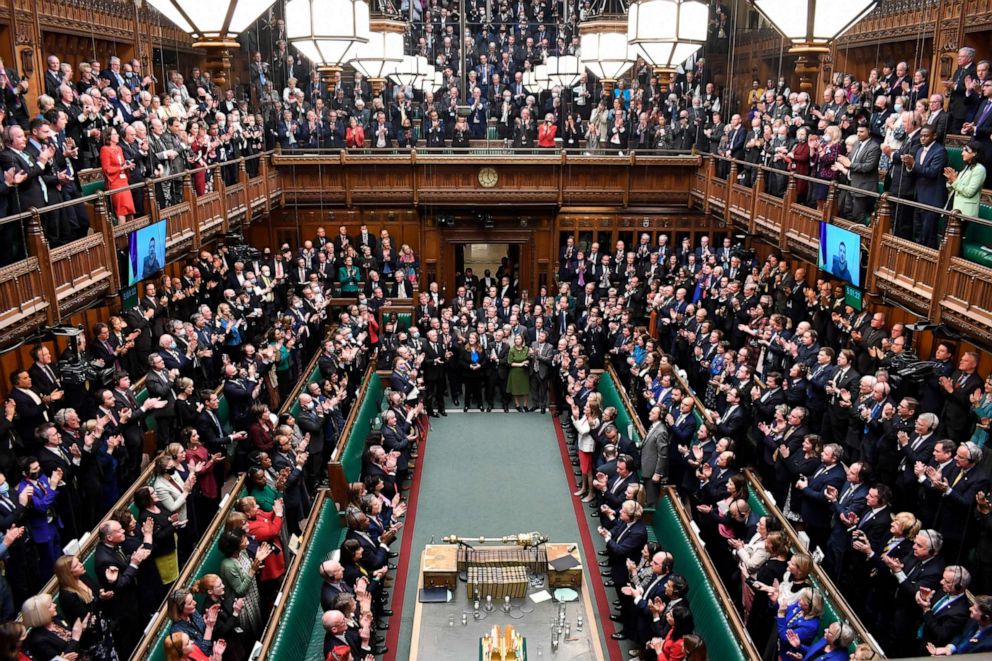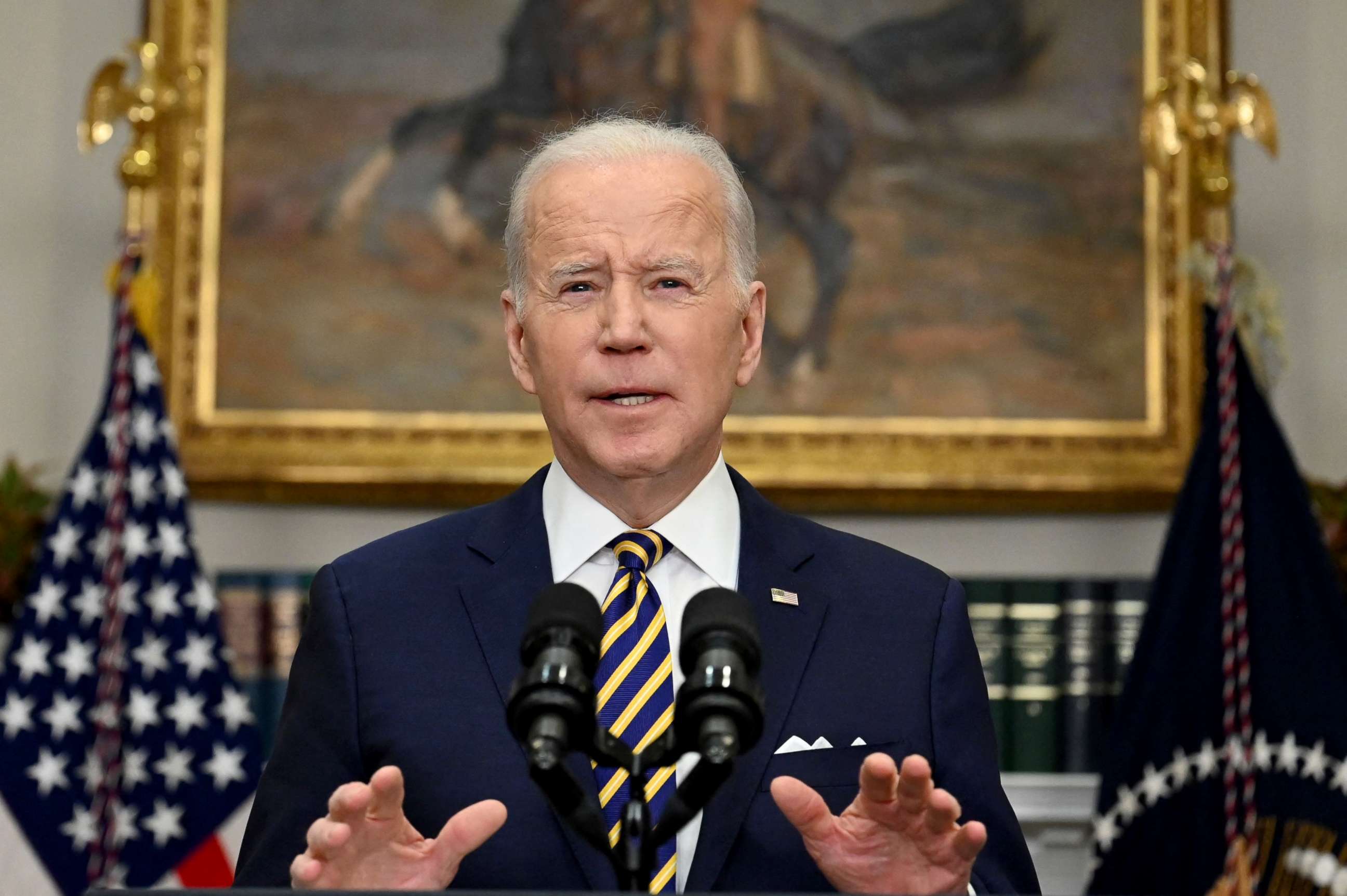Zelenskyy asks UK parliament to increase pressure of sanctions, make Ukrainian skies safe
Ukrainian President Volodymyr Zelenskyy spoke to the U.K.'s parliament Tuesday, asking it to increase the pressure of sanctions and "make our Ukrainian skies safe."
Zelenskyy has been asking NATO and the West to enforce a "no-fly" zone over Ukraine, but the U.S. and its allies have declined the request.
The Ukrainian president was greeted with rousing applause from members of the House, who stood before he spoke.

In his speech, Zelenskyy quoted Shakespeare, saying, "We have to be or not to be. This is a Shakespearean question. Not that I have the answer, but…Yes it is to be."
He also paraphrased the words of Winston Churchill.
"We will not give up. We will continue fighting for our land whatever the costs. We will fight in the fields, in the seas, in the streets. We will fight on the banks of different rivers," Zelenskyy said.
"We do not want to lose what we have," Zelenskyy said.
-ABC News' Joe Simonetti and Matt Gutman






